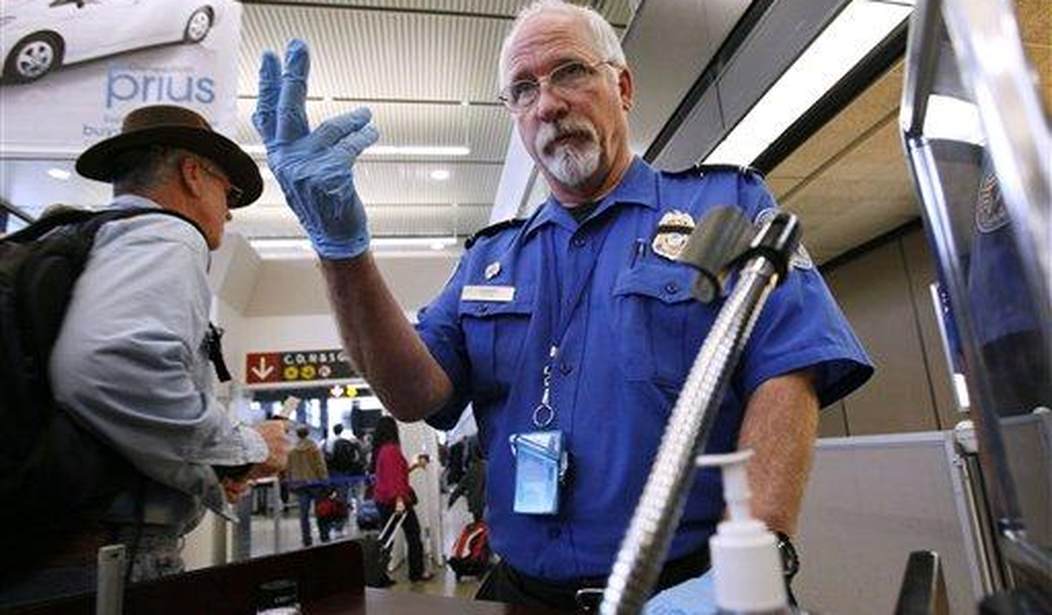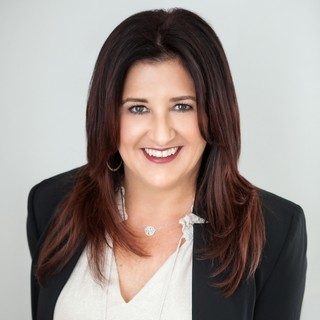We’ve all been there. Standing in that maddeningly long line in airport security waiting for the Transportation Security Administration (TSA) agents to poke, prod, and scan our bodies and our belongings. Imagine instead of the usual aggravation, you get to the scanner and are cussed at by the TSA agent and then told you need to strip right there in public. Um, what?! That’s exactly what happened to passenger Thomas Exler in terminal 4 at the Los Angeles International Airport (LAX) last April (full disclosure: Exler is my cousin).
Exler is one of nearly one million Americans who live with an ostomy pouch. Born with a rare birth defect called bladder exstrophy, his bladder was on the outside of his body at birth. At four years old, Exler had a urostomy pouch put in place and has led a relatively normal life ever since. Last April, however, what was supposed to be a routine flight home turned into a mortifying moment for Exler–and ultimately, a teachable opportunity to improve TSA treatment of those with medical conditions.
The typical airport security scanners we’re all familiar standing in with our hands over our heads display an ostomy pouch only as an unclear “blob like you have something in your pocket,” Exler told PJ Media. That’s the reason he’s usually “pulled aside and taken to the high-tech scanner” for further scrutiny. “So usually the procedure is they would pat me down and then they would take my hands and check them for explosives.” That’s what’s supposed to happen in a standard TSA procedure. What happened to Exler was much different and way more indiscrete.
When Exler informed the TSA agent that he had an ostomy pouch, the agent reacted by hurling an expletive at Exler. That’s when things got really strange. The TSA agent then inexplicably said Exler “needed to strip here and show us” right there in public in front of other passengers. “I was dumbfounded,” Exler said. He firmly told the agent, “No.” Exler asked the agent why he was saying he had to strip and that’s when several other agents came over to surround Exler. The agents then proceeded to try to intimidate Exler, telling him he needed to show them and that he couldn’t touch his belongings even though they’d already successfully passed through the scanner. That’s when Exler asked to be taken to a private area.
“At this point, there were [approximately] ten people” escorting him to the private passenger search area. Once there, an exasperated Exler exposed his ostomy pouch for the agents and asked if they were satisfied. While Exler maintained his cool, the TSA agents reacted poorly to seeing his ostomy pouch by exclaiming he “didn’t need to do that” and “oh, that’s enough, that’s enough!” Really, TSA, this is how you treat passengers who need special assistance–by making them feel like they’ve done something wrong? Yikes.
Reccommended: The U.S. Misery Index Worsens as Unchecked Bidenflation Grows
Meanwhile, Exler’s wife was left in the security area, barred from going through the scanner herself; nor was she allowed to go with Exler to the private search area. “It really shouldn’t have been such a big deal,” said Exler. “Afterwards, when I was finally permitted to walk to the gate, I was livid. It was as if the TSA agents thought they could say and do anything they wanted to me. I just knew how I was treated wasn’t right.”
According to the TSA’s website, a passenger can inform a TSA agent about his ostomy pouch before entering the screening area so he “can be screened without having to empty or expose the ostomy pouch [emphasis mine] during advanced imaging technology, metal detector, and pat-down screening.” After the TSA agent is informed, the ostomy pouch itself is then “subject to additional screening” and “may require a self pat-down” of the pouch outside of the clothing [emphasis mine], “followed by a test of [the passenger’s] hands for any trace of explosives.” Why didn’t the TSA agents at LAX know their own procedures? Why didn’t they employ discretion to protect the dignity and privacy of Exler?
To put it mildly, the TSA picked the wrong passenger to treat so indelicately — not that they should treat anyone that way. Not one to easily be embarrassed about his condition, Exler has not only been an ostomy pouch user since he was four, but as an adult, he’s also been an outspoken advocate for those with bladder and other medical issues. Exler is also a consultant and board member of the Pittsburgh Ostomy Society, as well as a non-profit called Jamie’s Dream Team, which helps make dreams come true for those with life-threatening illnesses or trauma. He’s the board vice president of the Association for the Bladder Exstrophy Community, an international support network for people with bladder exstrophy. In addition, he’s the founder of Courage to Shine, an award program to recognize and support individuals born with genitourinary birth defects. Ooops.
The real question though is: why are these TSA incidents still happening so many years later? Perhaps if the TSA spent more time hiring qualified workers and less time worrying about being woke, they’d have better-trained agents?
This time, Exler filed a formal complaint with the TSA over his substandard treatment at LAX. In response, he received a cut-and-paste apology email from TSA Disability Program Specialist Julie Bahrami:
Our office, TSA’s Disability Branch, investigates allegations of discrimination on the basis of disability in TSA’s security screening process. We apologize for your experience, and we do take your complaint seriously.
In response to your screening experience we are issuing a refresher training to our entire workforce, including TSA Officers at PDX, to remind them of the proper engagement and screening protocols at issue here.
We understand that you believe the security screening was not appropriate, and we apologize if you feel that TSA did not provide the service you expected. TSA expects its personnel to treat all travelers with dignity, respect, and courtesy. We regret this was not your experience. TSA is committed to its mission of securing the Nation’s transportation systems while ensuring freedom of movement for people and commerce.
Did you catch that? Bahrami and the TSA are retraining agents at PDX (Portland) not LAX (Los Angeles) where the incident with Exler occurred. Let’s hope that’s just a typo and that all TSA agents get a refresher. In addition, Bahrami went on to refer Exler to the TSA Cares disability helpline, which ironically had limited operating hours and wouldn’t have been available when Exler had the issue at LAX. That’s our helpful government at work, dear reader! Sigh.
Reccommended: 20 Smart Ways to Save Money at the Pump This Summer
True, some have suggested Exler simply apply for TSA Precheck to avoid the hassle; however, Exler said he doesn’t fly enough to make Precheck worth it. Besides, he’s actually thankful it happened to him and not to someone else who doesn’t know how to advocate for himself. “If I don’t speak up, what’s going to happen next time to someone else with a medical issue?” asked Exler. And believe it or not, this isn’t the first time he has had an unprovoked procedural run-in with poorly trained TSA agents. “Here I am telling them their own proper procedures and it isn’t the first time,” Exler told PJ Media. “This is almost the same problem I had with the TSA in 2015 — only this time it was worse.” Similar incidents in 2011 and 2015 resulted in an apology phone call from the TSA, but apparently little has changed.
In May, TSA Senior Policy Advisor Susan Buckland invited Exler to become a member of the TSA Disability and Medical Condition Coalition Committee. The volunteer committee works to better understand the needs and concerns of passengers with disabilities by bringing together a coalition of organizations that represent people with disabilities and medical conditions to provide information, gather feedback, and advise the TSA on best practices.
At least this time the TSA appears to have attempted to correct the situation. And hopefully with someone as knowledgeable as Exler on the committee, maybe now it won’t continue to happen. All individuals should be able to travel without the added stress and embarrassment of ill-informed and poorly-trained TSA agents. While certainly unacceptable, Exler’s experience reminds us all — as millions of Americans return to summer travel to sorely under-staffed airports and under-trained staff — that not only should we “see something, say something,” but we should also speak up whenever our rights and dignity are violated. Well done, Thomas Exler. Your fellow travelers are now better off because you spoke up.










Join the conversation as a VIP Member